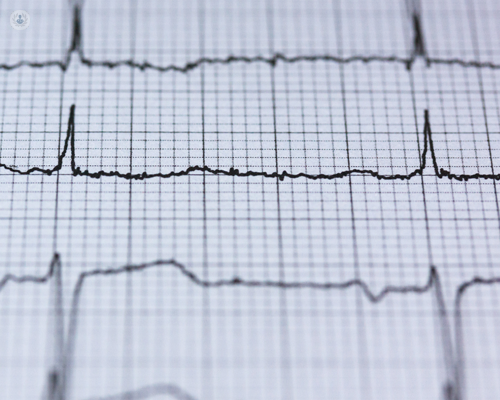When should I worry about heart palpitations?
Written in association with:Heart palpitations are sensations of an irregular, rapid, or fluttering heartbeat. Most of the time, they’re harmless and occur due to factors like stress, caffeine or dehydration - which as long as they aren’t chronic, can be easily addressed. However, in some cases, they may indicate an underlying heart condition or other health issues that require medical attention. It’s essential for your well-being to be aware when to seek help.

Common causes of heart palpitations
Heart palpitations can occur due to various triggers, including:
- Lifestyle factors: Stress, anxiety, caffeine, alcohol or nicotine.
- Physical activity: Intense exercise or sudden exertion.
- Medical conditions: Fever, dehydration, anaemia, or an overactive thyroid (hyperthyroidism).
- Medications: Certain decongestants, stimulants, or asthma inhalers.
While these causes are typically benign, there are times when palpitations may indicate something more serious.
Red flags to watch for with palpitations
You should seek medical advice if your heart palpitations are accompanied by:
- Chest pain or discomfort: This may signal a heart attack or angina.
- Shortness of breath: Difficulty breathing could indicate a heart or lung issue.
- Dizziness or fainting: These symptoms may suggest an arrhythmia or poor blood flow to the brain.
- Severe fatigue: Ongoing tiredness could point to a heart problem or other medical condition.
- Irregular heartbeat: If your heart feels like it’s skipping beats or racing for prolonged periods, it’s worth getting evaluated.
When are palpitations linked to a heart condition?
Some heart conditions can cause palpitations, including:
- Arrhythmias: Such as atrial fibrillation, supraventricular tachycardia (SVT), or ventricular tachycardia, which require medical evaluation.
- Structural heart disease: Conditions like valve disorders or cardiomyopathy.
- Coronary artery disease: Blockages in the arteries can lead to reduced blood flow and irregular rhythms.
What should you do if you're worried?
If you experience palpitations alongside any red-flag symptoms, seek medical attention immediately. A healthcare provider may recommend diagnostic tests such as:
- Electrocardiogram (ECG): Measures the electrical activity of your heart.
- Holter monitor: A portable device that records your heart rhythm over 24-48 hours.
- Echocardiogram: Uses ultrasound to examine heart structure and function.
- Blood tests: To check for thyroid function, anaemia or electrolyte imbalances.
How can I manage heart palpitations?
For benign palpitations, lifestyle adjustments can often help:
- Reduce caffeine and alcohol intake.
- Stay hydrated and maintain a balanced diet.
- Practise stress management techniques such as meditation or yoga.
- Avoid stimulants like nicotine or certain over-the-counter medications.
However, if your palpitations persist, worsen, or cause concern, it’s important to seek advice from your GP or a cardiologist. Early diagnosis and treatment can prevent potential complications and ensure peace of mind.


